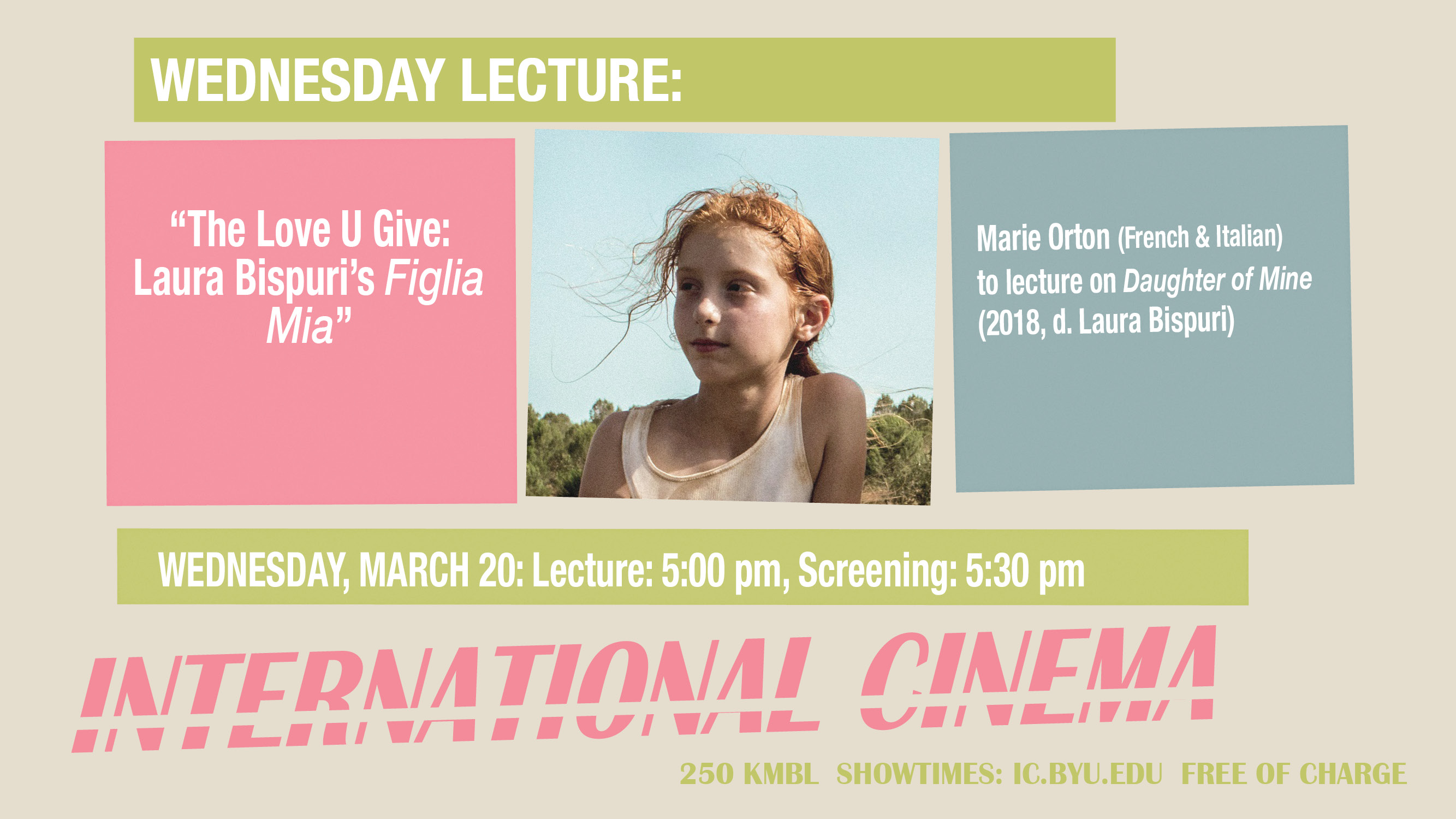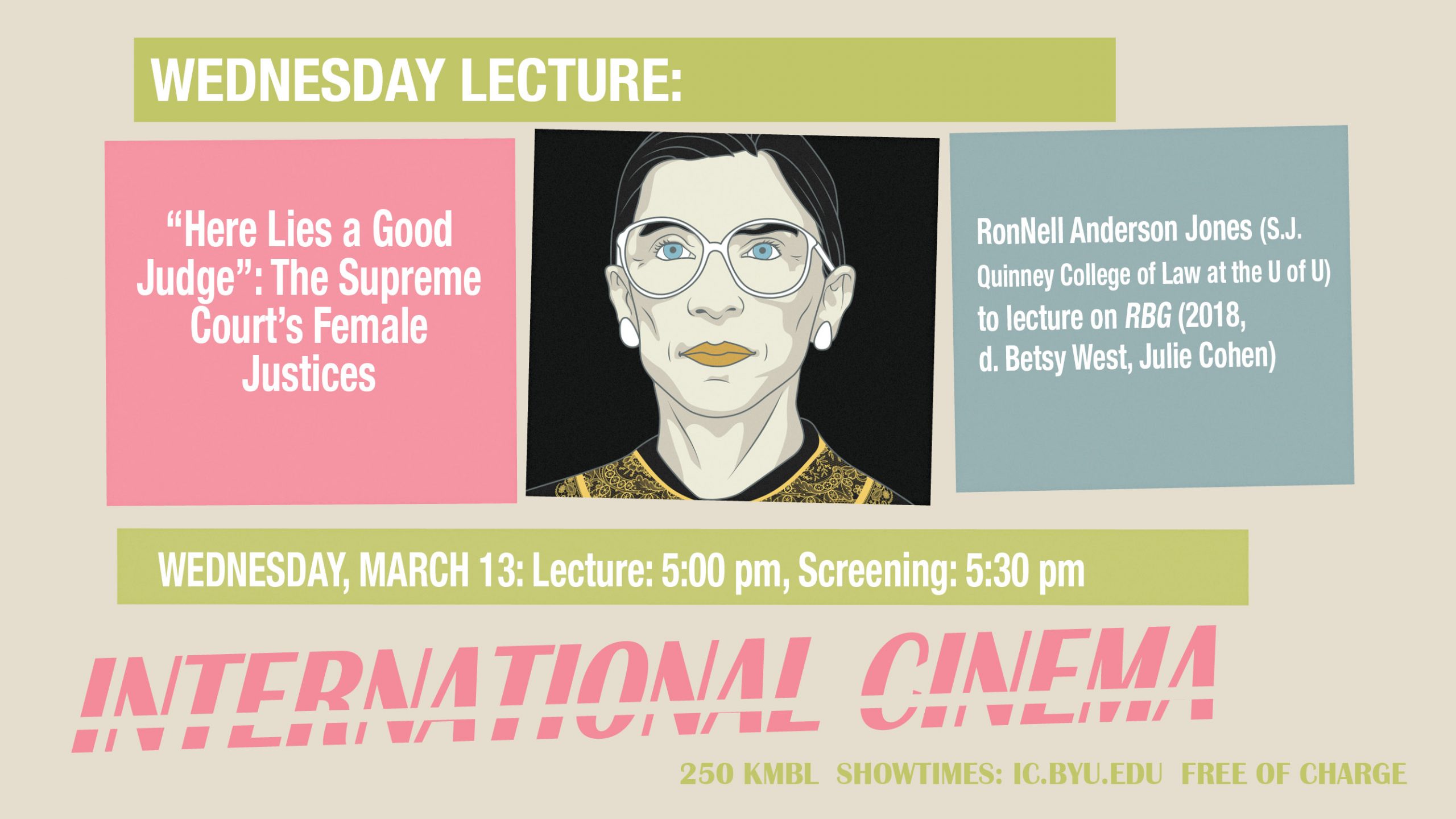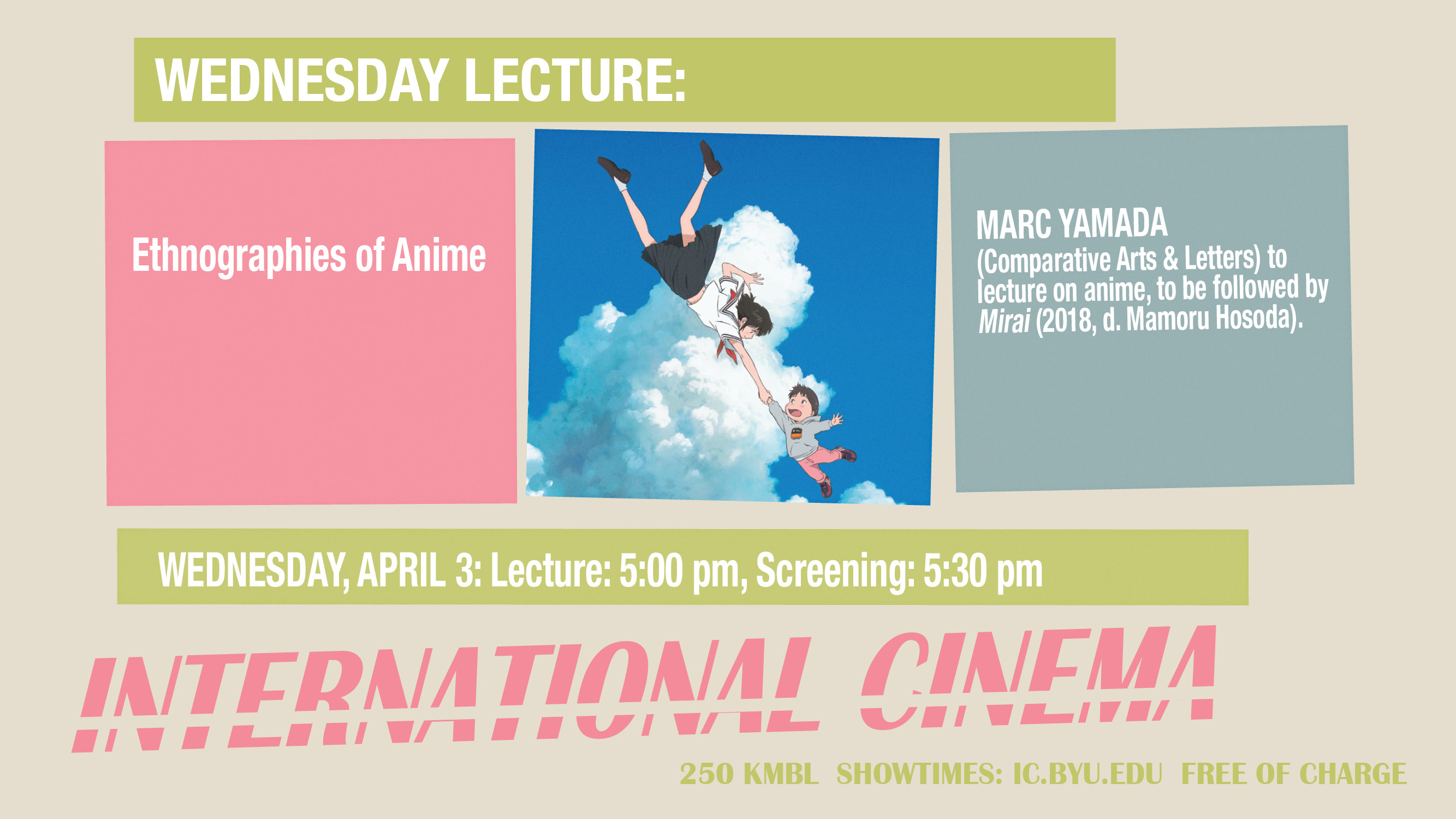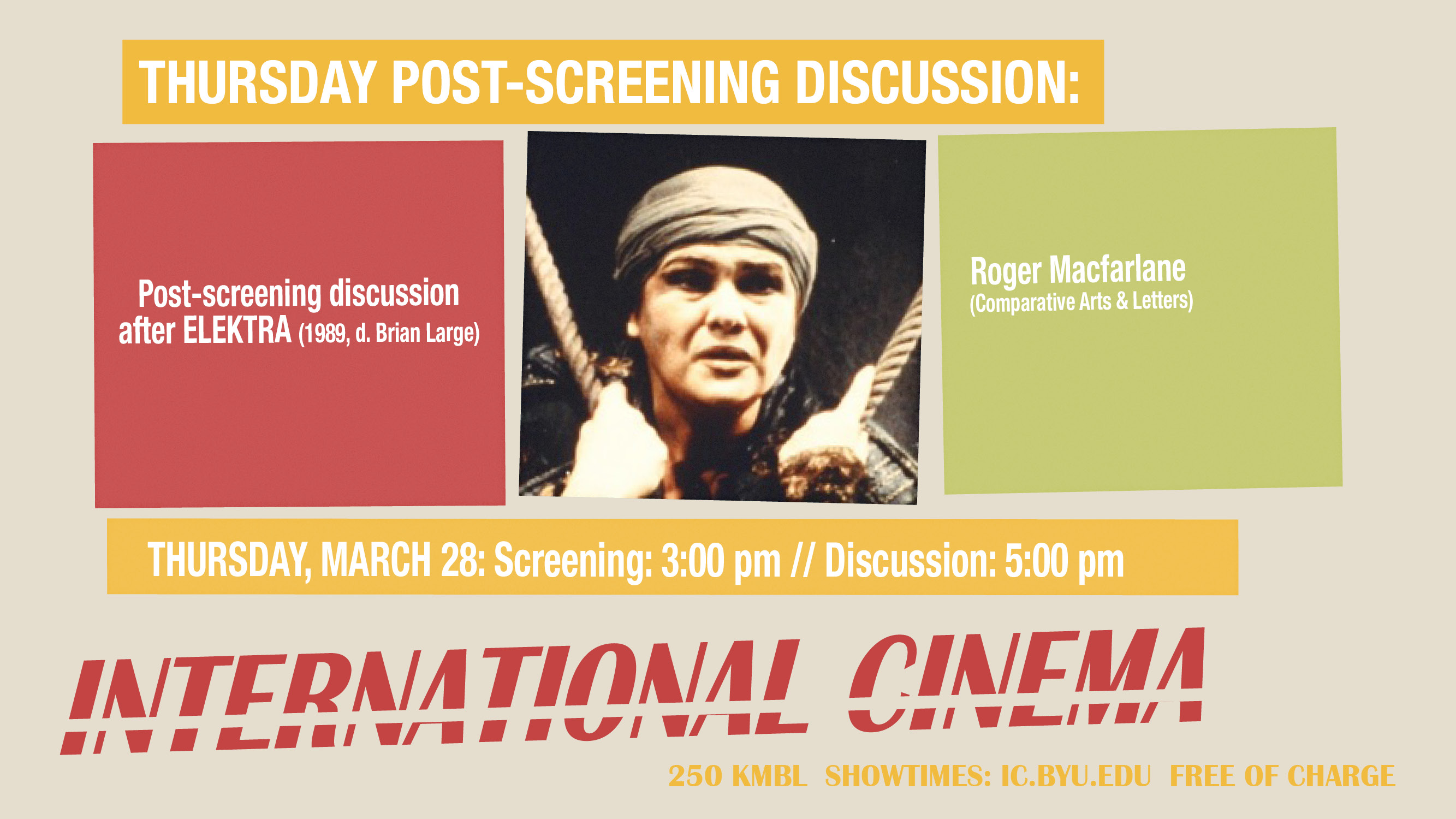
Podcast: Play in new window | Download
Subscribe: Apple Podcasts | RSS | More
In this week’s episode, IC assistant director Marie-Laure Julien Oscarson and IC co-director Chip Oscarson are joined by special guest Prof. Greg Stallings (Spanish and Portuguese) to discuss the films from our series “Oppression and Self Expression” including the film festival darling (01:31) Cold War (Pawel Pawlikowski, Polish/French 2018), (10:58) The Fencer (Klaus Härö, Estonian/Russian 2015), and (15:30) Black Kite (Tarique Qayumi, Dari, 2017). This week’s schedule is rounded out by the Sundance hit film (21:40 )RBG (Betsy West and Julie Cohen, English 2018) about the work of Supreme Court Justice Ruth Bader Ginsburg–part of our four-week long series “Women and Politics.” Also this week we preview the films from 27-30 March, Opera Week: (26:38) Elektra (Brian Large, German 1989), (28:24) Farewell My Concubine (Chen Kaige, Mandarin 1993), (28:54) The Magic Flute (Bergman, Swedish, 1975), and the documentary (31:53) Mankiller (Valerie Red-Horse, English 2017) about the life and work of Wilma Mankiller the woman ever to be first Principle Chief of the Cherokee Nation.

On Thursday 28 March in 250 KMBL, Alan Keele (Emeritus Professor of German) will be presenting a special lecture on Bergman’s filming of Mozart’s great opera, The Magic Flute. The title and first paragraph of his presentation is: “One Act of Great Artistic Creativity As a Truly Great Interpretation of Another Great Act of Artistic Creativity: Ingmar Bergman’s Film Shows Us How Wolfgang Amadeus Mozart’s Opera The Magic Flute Is a Powerful Testament To The Divine Potential Of The Entire Human Race.”

Podcast: Play in new window | Download
Subscribe: Apple Podcasts | RSS | More
In this week’s podcast we discuss the interplay of disability and creativity in the films (1:11) Maudie (Aisling Walsh 2016), (5:01) Mademoiselle Paradis (Barbara Albert 2018), and (9:36) A Silent Voice (Naoko Yamada 2016) as well as the remarkable work of Nobel Peace Prize laureate, Nadia Murad depicted in the documentary (14:28) On Her Shoulders (Alexandra Bombach 2018). We also preview the films for March 13-16 including (20:32) The Sea Inside (Alejandro Amenáber 2004) starring Javier Bardem, (22:04) Transit (2018) the latest film from German stand-out director Christian Petzold, the Italian mother(s)-daughter drama (25:12) Daughter of Mine (Laura Bispuri 2018), and the Arabic language documentary (26:59) The Judge (Erika Cohn 2017) about the first female judge in a Sharia court.

Join us on Wednesday 20 March at 5pm in 250 KMBL when Professor Marie Orton (French & Italian) will lecture on Laura Bispuri’s 2018 film Figlia Mia [Daughter of Mine].

Podcast: Play in new window | Download
Subscribe: Apple Podcasts | RSS | More
On this week’s podcast we take a deeper look at (0:52) Borg vs. McEnroe (Metz Pedersen, Swedish/Eng. 2017), Agnès Varda’s classic from the French New Wave (04:56) Cléo from 5 to 7 (French 1962), the hit Spanish film (11:10) Truman (Cesc Gay 2015), and the provacative documentary (13:38) What is Democracy? by Astrid Taylor (English/Greek/Arabic 2019). We also preview films from the week March 13-16 the form our series “Oppression and Self-Expression” including: (18:34) The Fencer (Klau Härö, Estonian/Russian 2015), the Oscar-nominated (20:52) Cold War (Pawel Pawlikowski, Polish/French 2018), (22:33) Black Kite (Tarique Qayumi, Dari 2017), and the Sundance favorite documentary RBG (Betsy West/Julie Cohen, USA 2018).


Prof. Greg Stallings (Spanish and Portuguese) lecturing on the work of Guillermo del Toro at International Cinema Feb. 20, 2019.
Dr. Gregory Stallings from the Spanish and Portuguese Department closely examines characteristics of films from renowned director Guillermo del Toro.
see original article here: https://humanities.byu.edu/one-of-los-tres-reyes-mexicanos-de-hollywood-guillermo-del-toro/
PROVO, Utah (21 February, 2019)—Heart-pounding action. Unforgettable stories. Elevated genres. All these can be found in the movies of Alfonso Cuarón, Alejandro González Iñárritu and Guillermo del Toro. These directors have come to be known simply as los tres Reyes Mexicanos de Hollywood, or the three Mexican kings of Hollywood.
Whether or not you realized it, you’ve likely already seen a movie or two directed by one of the big three. Cuarón has directed movies such as Gravity (2013), Harry Potter and the Prisoner of Askaban (2004), and A Little Princess (1995). Iñárritu is best known in America for The Revenant (2015) and Birdman (2014) while del Toro has been praised for hits like The Shape of Water (2017), Pacific Rim (2013), and Pan’s Labyrinth (2006).
At one of BYU International Cinema’s weekly lectures, Dr. Gregory Stallings further explored del Toro’s techniques. Stallings noted how del Toro frequently uses unique color palettes, elaborate backgrounds, and oblique references to Latin American culture and history in his films. Watching del Toro’s newest hit, The Shape of Water, one can find gorgeous shades of green present throughout the film. The sets and costumes themselves are also beautiful, another hallmark quality of del Toro’s expertise. Stallings noted how “Some people say he makes films for DVD watchers so you can stop the frame and kind of worship him and see the skillfulness of the mise-en-scène.”
Del Toro’s films, although visually stunning, are not meant merely to sate the visual appetite of viewers. Stallings remarked on how they satisfy viewer’s hunger for new stories by taking the cliché or washed-out and making them new again. “[Guillermo del Toro] loves genres that historically have been marginalized,” Stallings noted. “He’s always trying to elevate genres.” In doing so, Stallings reminded, del Toro is able to pose questions that really make the audience think.
Stallings went on to say that The Shape of Water includes a clear warning against the danger of seeing the world in terms of us versus them. He noted how the film works to give voices to those who are often ignored or cast aside in society through its representation of racial minorities, women, and those with disabilities. Stallings further argued that although the film is very much a fairytale in some regards, it deals with real issues that we are being faced with today: “We see these themes of immigration and empathy for the other.”
Stallings ended the lecture with a quote from Guillermo del Toro himself: “The only thing that Jesus, Buddha, and the Beatles agreed on was that all you need is love.” He wholeheartedly agreed with del Toro, reminding that all of his films “have to do with something positive, with spirituality, with love, and with optimism.” All those positive subjects, Stallings noted, are perhaps the greatest things we can take away from del Toro’s masterful films.
—Jensyn Eubank (English ‘20)

“Here Lies a Good Judge”: The Supreme Court’s Female Justices, Lecture by Dr. RonNell Anderson Jones
On 13 March at 5pm, Dr. RonNell Anderson Jones (S.J. Quinney College of Law at U of U) will be with us to lecture on the hit documentary about Supreme Court justice Ruth Bader Ginsburg, RBG (Betsy West/Julie Cohen, USA 2018).



